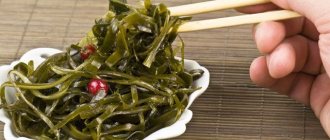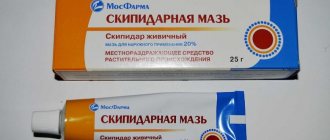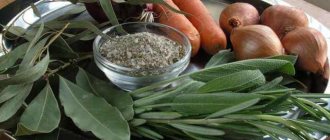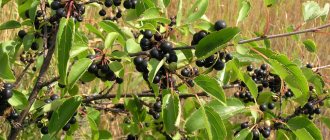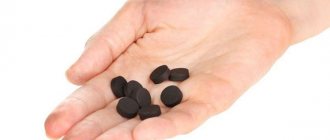Photo pixabay.com
My grandmother treated the same diseases with different herbs. She advised one person to drink one herb, another another. Grandma rarely made a mistake with her choice of herbs. Doing this on your own is much more difficult. But there are many plants that treat a huge number of diseases, and in treatment they have a great positive effect.
Among them is yarrow. This plant has many healing properties that cannot be listed so easily. Thanks to the content of resins and silicon, it restores tissue after operations, burns, and wounds. It is used as a hemostatic agent for internal and external bleeding, diseases of the gastrointestinal tract, for inflammatory processes in the uterus, and also as a diaphoretic, choleretic, diuretic, antiseptic and appetite improver. It was for the ability of the plant to treat a huge number of diseases that my grandmother called yarrow a thousand lives.
Photo pixabay.com
Metrorrhagia
Metrorrhagia is uterine bleeding that is not associated with the menstrual cycle.
Occurs with uterine cancer, uterine fibroids and other diseases. An infusion is prepared for treatment. Two tablespoons of dry crushed yarrow herb are poured into one liter of boiling water, left for three hours and filtered. Take one tablespoon of infusion three times a day until improvement. When treating uterine bleeding with yarrow, women need to be very careful, otherwise after treatment the menstrual cycle will take a long time to recover, or rather, it simply will not exist.
Chemical composition
The herb of the plant contains essential oil (from 0.25–0.8% to 1.4%). Its amount varies depending on the growing season: during the flowering of yarrow, the content of essential oil increases.
The essential oil contains monoterpenoids (tujol, pinene, camphor, cineole, borneol) and sesquiterpenoids (acetylbalquinolide, proazulene, achillenum, caryophyllene).
The following substances are also found in yarrow herb: flavonoids, alkaloids, tannins, esters, stachydrine, choline, acetic, isovaleric and formic acids, ascorbic acid, vitamins A and K.
Benefits and harms
The beneficial properties of the product are expressed in the following effects:
- hemostatic;
- anti-inflammatory;
- astringent;
- bactericidal;
- wound healing;
- anesthetic;
- choleretic;
- antiallergic.
Yarrow tincture can also be harmful. Due to the choleretic effect, there is a risk of stone movement and blockage of the duct. This can aggravate cholecystitis.
When taking it, be sure to strictly follow the dosage. Exceeding it is :
- allergic reaction;
- poisoning;
- menstrual irregularities;
- dizziness;
- decreased blood pressure;
- gastrointestinal disorders;
- exacerbation of chronic diseases.
Recipe
Preparation of yarrow tincture involves long-term exposure of raw materials in a dark and warm place . The optimal temperature is 20-24°C.
For preparation, it is best to take glassware - a jar or bottle. Take the lid (cork) from the same material, nylon or plastic. It is better to use dishes made of dark glass. For storage, you can choose a smaller container - after filtering, the volume will decrease.
On vodka
To prepare yarrow tincture with vodka you need :
- 30 g of dry vegetable raw materials;
- 0.1 l of vodka.
Dry yarrow is crushed, poured into a suitable container and filled with vodka.
You need to infuse the product for 2 weeks, shaking daily. The finished composition is filtered.
On moonshine
Yarrow tincture on moonshine is prepared according to the same recipe as the vodka solution. If the alcohol base is too strong, it is diluted.
It is convenient to use the Fertman table for calculations . So, to obtain a base of 40%, add 38.4 ml of water to 0.1 liter of moonshine with a strength of 55%, 60% - 51.4 ml.
Alcohol form
A recipe with vodka is suitable for cooking with alcohol. You can immediately dilute the base to 40% strength using Fertman's table. According to it, to 0.1 liter of 95% alcohol add 144.3 liters of water, 75% - 90.6 ml.
There is another option - to use pure alcohol for preparation. Then the finished product is diluted after filtering, taking into account the final volume. In this case, the plant material is infused for less than 10 days.
Choice of alcohol base
Yarrow tincture is prepared with alcohol, vodka, and moonshine. It is important to choose a high-quality base; the action and safety of the product depends on it.
Moonshine
Moonshine is close in strength to vodka, so often it does not even need to be diluted to prepare medicine. Only use purified product. Moonshine should be transparent, without sediment or strong odor. In its preparation, the quality of raw materials, equipment, and adherence to the recipe are important.
Vodka
More often, vodka is used to prepare healing compositions - an affordable product. You need to take good raw materials. This is evidenced by the following signs of quality :
- transparency;
- absence of sediment, impurities;
- soft taste;
- stamp with the date of bottling;
- a spiral of small bubbles when shaken;
- when ignited, a weak blue flame;
- tight cap;
- maintaining transparency when adding sulfuric acid (1:1).
Alcohol
To prepare medicinal formulations, it is better to use medical alcohol, since the requirements for it are increased. The concentration varies, reaching 95%. Dilute with water in a ratio of 2:3 to the required level.
Medical alcohol is not available to everyone, so it is usually used as a food product. The degree of purification is important . It is highest for drinking ethyl alcohol. A rectified product is also suitable.
Industrial alcohol is not suitable for preparing medicinal tinctures. Wood, cellulose or oil are used to make it. This is dangerous to health, fraught with poisoning and death.
Selection of raw materials
To prepare the medicine, use yarrow grass or flowers. Fresh and dried raw materials are suitable. The latter can be bought or prepared yourself.
Yarrow is harvested during active flowering . During this period, a maximum of essential oil and valuable elements accumulate. Harvest grass on dry and sunny days. It is better to work in the morning, but after the dew has dried.
The raw materials are cut with a sharp knife. Shoots up to 10-15 cm are harvested, with at least 2-3 leaves. Flower baskets are cut so that the stem is no more than 4 cm.
Plant materials are collected in environmentally friendly places. It is important to be away from industrial enterprises, roads, and landfills.
Preparation
Yarrow can be used fresh. It is not recommended to wash the collected raw materials, especially flowers that contain beneficial pollen.
Dried yarrow is also suitable for preparing medicine.
They prepare it in different ways:
- natural drying - under a canopy, in the attic, in the open air, but only in the shade;
- workpiece in a dryer or oven - temperature up to 40-50°C.
The plants are dried in a thin layer and then stored in paper bags, linen bags or glass jars. High humidity and proximity to substances and products with a strong odor are unacceptable.
The raw materials must be dried evenly and completely . The stems should break easily, the flowers and leaves should crumble.
To prepare a healing remedy, yarrow must be crushed. Fresh raw materials are finely chopped, and dry ones are simply crumbled by hand.
Advantages and disadvantages
Yarrow has long been known for its healing properties and is even officially recognized as a medicinal raw material in Russia and other countries. The advantages of the tincture from this plant are:
- no heat treatment, which preserves more benefits;
- long-term storage;
- better dissolution of chemical elements;
- fast absorption;
- antiseptic effect;
- convenient form of administration - the dosage is minimal, several times less compared to some dosage forms;
- compactness of the medicine - you can take the bottle with you, it takes up little space;
- possibility of self-cooking, adding other ingredients.
Minuses:
- presence of alcohol in the composition;
- the product must be infused for several days or weeks;
- there are contraindications;
- side effects;
- risk of poisoning in case of overdose.
Medicinal properties of yarrow
In the chemical composition of Achilles herb we will find essential oil rich in homazulene, the alkaloid achillein, esters, camphor, flavonoid glycosides, tannins, carotene, vitamins K, C, organic acids, amino acids, as well as minerals - magnesium, potassium, boron, zinc , selenium, molybdenum, copper, calcium.
Due to the presence of essential compounds and flavonoids, yarrow has an antispasmodic effect on the smooth muscle tissue of the biliary tract, intestines and urinary tract. The excretion of bile into the duodenum increases, and the pain caused by intestinal spasm is relieved. An excellent herb for those who have problems with bile excretion and spasms in the gastrointestinal tract.
Yarrow relieves inflammation in the sphincter of Oddi, relieves bloating, and improves digestion. For pancreatitis, yarrow is extremely effective when mixed with St. John's wort in equal parts.
Bitter achillein of yarrow activates the secretion of gastric juice. This is great news for those who have low stomach acidity and suffer from inflammation - hypoacid gastritis.
Yarrow quickly stops bleeding both when applied topically and when used systemically in the form of preparations. But at the same time - which is very important for those who have thick blood - it does not cause blood clots. Therefore, it is not contraindicated for thrombophlebitis, heart attack and stroke. Yarrow has antiallergic, bactericidal, and anti-inflammatory effects. May have a sedative (calming) and hypotensive effect.
It is important to note that the plant is moderately poisonous. In case of overdose, it may cause hallucinations.
What is the drug?
Yarrow tincture is a liquid dosage form . Parts of the plant are crushed and filled with an alcohol base of a certain concentration. The product is infused in a dark and warm place and filtered.
Difference from infusion, decoction, extract
The alcohol base makes the tincture and extract similar.
The latter is a concentrated extract from plant materials. Prepare the extract immediately, without keeping it for several days. The difference from infusion and decoction lies in the peculiarities of preparation. To obtain such dosage forms, plant materials are filled with water.
In the case of decoction, heat treatment is used; the preparation process usually takes no more than an hour, not taking into account cooling.
The infusion is prepared cold, hot or mixed. Plant materials are usually filled with water for no more than half an hour, less often for several hours or a day. The tincture is kept many times longer, sometimes for a month.
An important difference between tinctures and decoctions and infusions is the shelf life. The alcohol base extends it to 1-2 years. Decoctions and infusions are stored for no longer than 2-3 days.
Indications for use
Yarrow has found wide use in folk medicine in many countries.
The plant is used for gastrointestinal diseases, dyspeptic disorders, kidney stones, inflammatory processes in the urinary tract and kidneys, nocturnal emissions and urinary incontinence, gynecological diseases (fibroids, fibroids, ovarian inflammation, etc.).
A decoction of yarrow herb is used for external and internal bleeding (including severe postpartum hemorrhage), wounds of various origins, to stimulate lactation and regulate the menstrual cycle, for malaria, hemorrhoids, and as an anthelmintic.
Fresh juice of the plant with the addition of honey is prescribed for anemia, tuberculosis and liver diseases accompanied by jaundice. In addition, it is a good remedy for improving appetite.
Yarrow tea helps with diseases of the nervous system (insomnia, headaches, dizziness, hysteria), colds and coughs, nausea, neuralgia and arthritis.
A decoction of the plant's flowers is used externally for acne, and baths with the decoction are prescribed for scaly lichen and scabies.
Contraindications
Yarrow tincture is not suitable for everyone. Contraindications to its use are as follows :
individual intolerance;- children under 6 years of age;
- pregnancy;
- breast-feeding;
- increased blood clotting;
- tendency to thrombosis;
- gastritis with high acidity;
- gastrointestinal ulcer.

